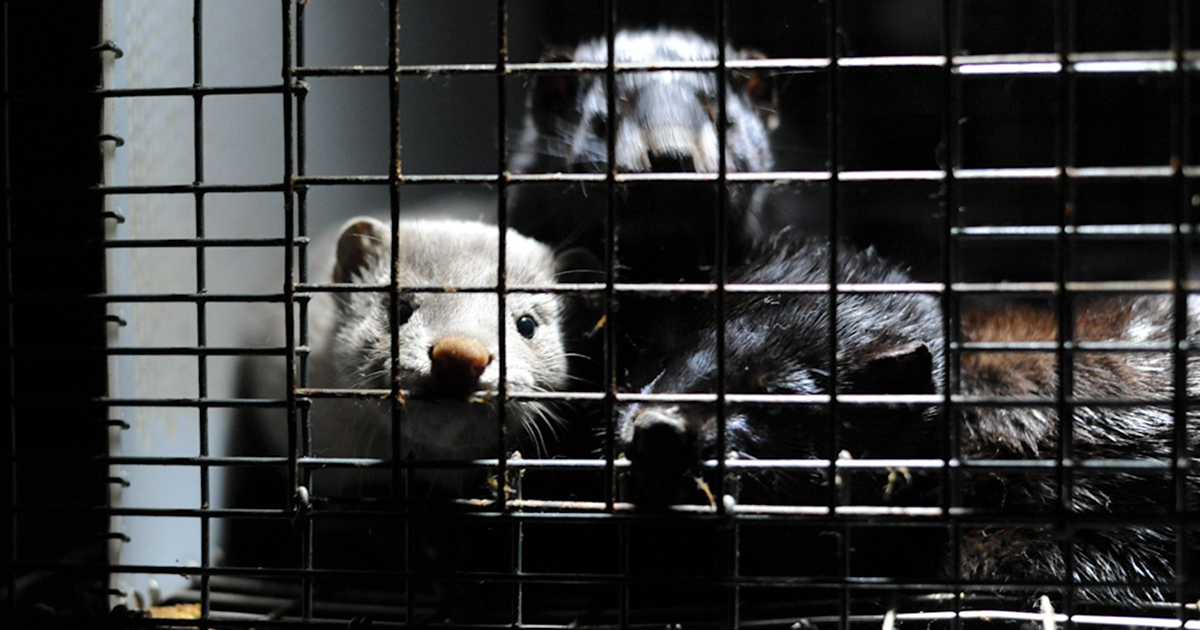
Coronavirus is now confirmed not just in mink farm workers, but in the mink themselves at one farm in the Fraser Valley of British Columbia.
In a news release, provincial authorities noted that the farm had been following all biosecurity measures in place to prevent coronavirus from taking a foothold.
“We have just seen the proof that biosecurity isn’t enough to prevent the movement of this virus on mink farms. This can happen again, and we expect it will,” says Lesley Fox, Executive Director of The Fur-Bearers.
The Fur-Bearers note that with only a few mink farms remaining in British Columbia, the time is ripe for government to assist them to moving from the fur industry into new, green and sustainable businesses. Additionally, 81% of Canadians oppose killing animals for their fur, according to a Research Co. survey.
“The few fur farms remaining in British Columbia will likely require government assistance to recover from the pandemic and historically low pelt prices,” Fox says. “We should use this opportunity to transition these businesses to new, profitable and sustainable operations that help us meet our climate goals.”
Residents of British Columbia are encouraged to contact their MLA and Minister of Agriculture Lana Popham (AGR.Minister@gov.bc.ca). Tips for writing your own letter are at the bottom of this page; please consider using our form below.
Want to write your own letter? Send it to AGR.Minister@gov.bc.ca and consider using these keypoints:
Mink farms have been and continue to be a concern for public health:
- Recommended “biosecurity” measures were confirmed as in place where virus found
- Eight workers at a single farm and all tested mink positive for coronavirus in Fraser Valley
- Concerns regarding rapid coronavirus spread on mink fur farms known since summer
- Mutated form of the virus identified in Europe that have potential to negatively impact vaccination efforts
- Regardless of the number of farms and even on small farms, hundreds to tens of thousands of mink are kept in conditions that are ideal for a coronavirus (and others, such as Aleutian Disease) to take root, spread and mutate
- Responding to COVID on mink farms puts an unnecessary strain on our already limited resources, including medical staff
It’s time to end fur farming:
- There are only thirteen farms in British Columbia
- Animal suffering and environmental pollution on fur farms is well documented
- Fur farming is not an economic driver for BC or Canada
- 81% of Canadians oppose killing animals for their fur
- It is likely the industry will require government assistance to recover from the pandemic
- The Minister’s mandate includes finding ways to meet provincial climate goals
- Fur farms could potentially transition to green, sustainable businesses that help meet provincial and federal climate goals
- Countries all over the world have already banned or restricted fur farming including the UK, Netherlands, France, Norway, Belgium and Israel
- In October 2019, California became the first state in the US to ban fur sales. The statewide legislation prohibits the sales and production of new fur items starting 2023
- Textile innovation has replaced the need for animal fur
- Thousands of companies and brands are fur-free including Macy’s, Bloomingdale’s, Gucci, Prada, Chanel, Coach, Burberry, Versace, Michael Kors, Armani, Winners and H&M
